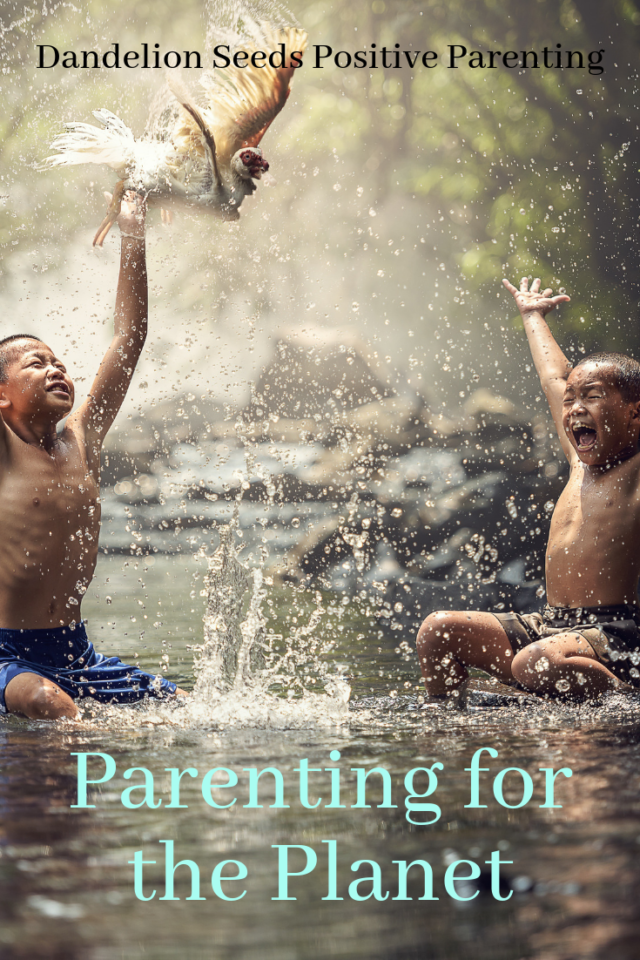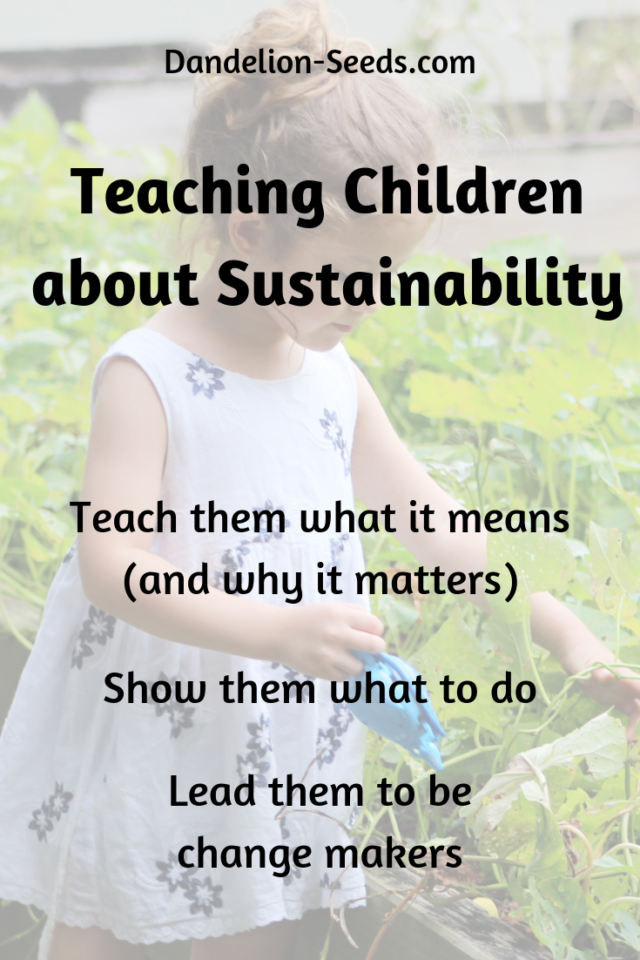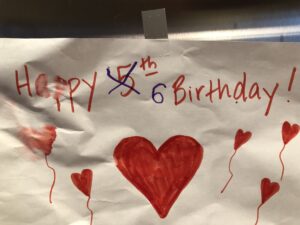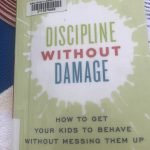
Sign in
Don't have an account with us? Sign up using the form below and get some free bonuses!

Teaching children how to protect the Earth often isn't at the forefront of our minds. We recycle, of course, and we're generally good citizens. In all practicality, however, we're often busy...making lunch. Managing our children's bedtimes. Living life.
I don't write that judgmentally. I'm guilty of it, too.
As part of conscious parenting, however, it's imperative that we do teach kids why we need to protect the Earth. Conscious parenting and salvaging what we can of the planet aren't mutually exclusive. We have a moral obligation to not only teach children how to be kind to other humans, but also to show them how to nurture the global home they share.

We shouldn't just teach kids about the implications of deforestation or melting ice caps, of course ---rather, they need to know about all the myriad factors that play into the future of this "pale blue dot" we call home.
However, it feels a bit overwhelming to have that responsibility on our shoulders, doesn't it?
It is overwhelming to protect the Earth, much less teach little kids about it. I'm not minimizing the enormity of the task. Fortunately, as individuals, we're not supposed to carry heavy burdens alone---especially seemingly insurmountable ones like climate change. Positively altering our world is going to take work from every single one of us as a global community. What matters is that we're doing our part.
There's always something we can do to protect the Earth. Here are three ways that work well as we parent our children: Teach Them, Show Them, and Lead Them.

In addition to modeling for your kids all the ways you protect the Earth, challenge them to find ways to be change makers themselves. See what they come up with. Here are a few examples:

birthday streamers or decorations, wrapping paper or ribbons, take a single "day in the life" and see what you can reuse again another day. I never realized that I'd inherit my great grandmother's habit of saying, "Don't tear the wrapping paper---we'll use it again next year!"---but here I am. (I plan to phase out wrapping paper entirely once what we've been reusing no longer holds together.) Encourage your children to challenge their friends to nix single use items in their homes, too. Frame it as an ongoing scavenger hunt. Every day holds opportunities to rethink that which we used to consider disposable.

Solar panels and electric cars aren't feasible for everyone, and we can't always choose whether our homes are powered by wind turbines. However, until more of those things are commonplace, you can write letters with your children. Make phone calls. Model to your children that communication matters---because their future on this planet matters.
There are so many ways to weave this topic into your daily conversations. Although it's wonderful to have sit-down discussions about how to protect the Earth, it doesn't need to be complicated or heavy-handed, particularly with children who are highly sensitive. Adapt your message to suit your child's ability to process the information thoughtfully and without fear mongering. Starting small is great, particularly for small children. No child is too young to listen. It's all about planting the proverbial seed. It will grow if you let it.
Awareness and understanding go a long way; they're how kids establish their belief systems about what's important.
Here are some simple and effective ways you can teach young children about how to protect the Earth:
What you can say to your child: "I'm turning off the bedroom lights because no one's in there. That's how we save energy. Saving energy helps protect the Earth and everyone who lives on it."
 items to break down. A single plastic bag can take anywhere from 10-1000 years; some studies argue that they never fully decompose. What else can you research together?
items to break down. A single plastic bag can take anywhere from 10-1000 years; some studies argue that they never fully decompose. What else can you research together?What you can say to your child: "We're walking to the library today so we don't use the fuel that's in our car. Saving fuel helps protect the Earth by reducing fumes and protecting the planet's natural resources."
Talking goes a long way for kids. If they don't hear important messages from you, what would they know to look for (or to avoid) in society as they grow up?
It's important for kids to know that they're not too young to care; not too young to help.
Have you heard of Greta Thunberg, a 17-year-old girl from Sweden? She's a climate activist who's inspired marches for young people around the world. She completed an incredible 15-day, 3,000-mile (4,800km) voyage on a carbon-neutral boat across the Atlantic to bring awareness to climate change. She spoke at the United Nations Climate Summit in September 2019. Here's her very compelling speech to the Assemblée Nationale:
Greta's work is inspiring and wonderful, yet she's not the only one who's doing good work to protect the Earth. Young activists are doing important climate work all over the world. Share their stories with your children.
Watch your children's reactions to others' work to learn which elements of protecting our planet speak to their hearts. Then, foster those things. Do they love marine animals? What about their favorite forest creatures? Do your kids enjoy hiking, playing outside in good weather, or boating with Grandpa? See what other people are doing to make enjoying those things possible for your child. Tie those things into your discussions. They're specific. They're memorable.
As with all topics, you'll be more likely to succeed at teaching your message about sustainability if your child feels emotionally compelled to learn. Just like some kids enjoy math for the sake of numbers and others don't care about math until they discover physics, pay attention to what resonates with your child. Show them what others are doing in an area that inspires them. Read books together about ways your children can help protect the Earth (afflinks). Check them out from your local library if you can.
Be it a cigarette butt on the pavement, smoke spewing from a manufacturing facility, or someone acting irresponsibly towards our planet in any way, it's perfectly okay to point it out and say, "Yuck." Explain why it's off-putting.
What you can say to your child: "I don't like it when people leave their trash near the lake. It's dirty and can make the fish and animals here very sick. I want people to do better." Bonus points: pick up the trash and take it to the nearest bin. Pack an eco-friendly hand sanitizer to keep with you if you're concerned about cleanliness.
Kids need to know that adults outside your home care about sustainability, too---lest they feel as overwhelmed as we do. It's hard to feel like an activist in isolation. Show them they're not alone. Find role models they admire (famous or not) and share with them what those people are doing.
Raffi, the beloved children's troubadour and creator of his namesake Foundation for Child Honouring, wrote two wonderful new songs about the climate emergency ("Young People Marching – for Greta Thunberg" and "Do We Love Enough"). Here's his press release. You can stream the songs from here.
I'd love to say "Show kids that we've got this." Although I can't do that, I'll write, "Show them that we're working on it."
The normal order of things is for them to outlive us on a safe and healthy planet.
We can't force kids to be stewards of the Earth; it's our job as conscious parents to model these things for them. They'll follow our lead. As a bonus, the more you instill your messages in your kids, the more they'll hold you accountable, too. Your actions will become their actions as they grow up. They're paying attention now.
"Another day is imminent. Another world is possible." -- Raffi Cavoukian
Sarah R. Moore is an internationally published writer and the founder of Dandelion Seeds Positive Parenting. You can follow her on Facebook, Pinterest, and Instagram. She’s currently worldschooling her family. Her glass is half full.
I was sitting poolside in Florida, all by myself. I italicize that because it was a fairly momentous event. I am hardly ever alone. As in, pretty much never, not even for a minute. So, it felt like a fairly big deal to have my husband entertaining my daughter in the nearby pool (but out of earshot from me), and to have almost no one around. The lounge chairs were nearly empty; it was chilly by Florida standards.
I superficially noticed a woman sitting pretty close to the chair I'd chosen, but I didn't pay her much attention.
After a few seconds, I heard the nearby woman exclaim, "Oh, I am SO sorry!"
I looked up and saw that a dripping wet young child was standing between us. Although I was still perfectly dry, the mama must've assumed her daughter had gotten me wet somehow. Smiling back sincerely, I offered, "Oh, there's nothing to apologize for! I'm dry. Plus, I have a five-year-old, so I totally get it."
Her daughter ran back to the pool. The mom, however, held my gaze.
"You DO?" she inquired. "Mine just turned five and it's throwing me for a loop. It's so hard and I just don't know what to do with her. Is it like that for you, too?"
As if I'd planned it, but of course I hadn't, I displayed my handy visual aid. I held out the book I'd brought to read poolside---Discipline Without Damage by Dr. Vanessa Lapointe, R. Psych (afflink)---and replied warmly and truthfully, "We're all still learning."
Her jaw just about hit the ground. She asked to take a photo of the book's cover, and I offered it willingly.
"It's so hard," she said with her beautifully thick southern accent. "I've done it all wrong."
She continued, "I nursed her for too long. She was three when she stopped. And I should've started punishing her when she was littler; taking things away; smacking; doing what all my friends with older kids said I should do. I'm really too late, aren't I? The last thing I want is a kid who doesn't grow up respecting me. I mean, she still sleeps in my bed. I'm doing it all wrong."
Gently, I offered, "I'm so glad you're here. I want you to know that you didn't nurse her for too long. You did what worked for you both. Also, let me tell you---I know some things about this. I'm a mama, too, and sometimes I help other parents. A lot changes at age five. Your girl's brain chemistry has just changed substantially; it just is hard while you learn about this new version of the same child you've always had. Punishment is never the answer. Building a positive lifelong connection with her, is. Respect comes from trust. You're doing it right."
She blinked back tears.

She cried tears of relief. I got a little misty, too, because...well, when in Rome, right? Here we were, two strangers, who "got" each other.
We talked through a few specifics of her parenting and of her daughter.
She told me that earlier that day, she'd prayed that someone would just "sit right down next to me at the pool today and tell me what to do." She confessed that her heart wasn't hearing the answer by itself, so she'd decided to be specific in her request.
Now, to be clear, I would never call myself an answer to prayer. If anything, when I was "zoning" moments before our conversation, I'd been seeking a bit of direction, myself. Sometimes I wonder if I should be doing what I'm doing, as a gentle parenting writer. It feels right in my heart, but for all the time I invest in it, does it actually help anybody?
If we're wondering whether gentle parenting is "right" when so much of the world seems anything but gentle, sometimes we need to look no farther than the person right next to us. Even more, we need to trust that something greater than us is at work, and that we're all exactly where we're supposed to be.